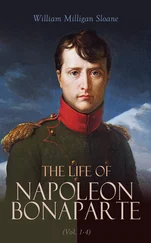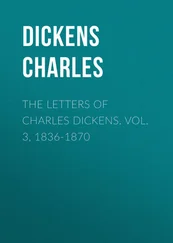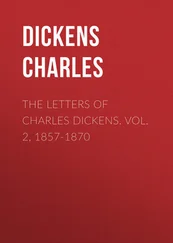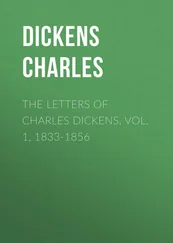William James - The Letters of William James, Vol. 1
Здесь есть возможность читать онлайн «William James - The Letters of William James, Vol. 1» — ознакомительный отрывок электронной книги совершенно бесплатно, а после прочтения отрывка купить полную версию. В некоторых случаях можно слушать аудио, скачать через торрент в формате fb2 и присутствует краткое содержание. Жанр: Биографии и Мемуары, Философия, foreign_edu, foreign_antique, на английском языке. Описание произведения, (предисловие) а так же отзывы посетителей доступны на портале библиотеки ЛибКат.
- Название:The Letters of William James, Vol. 1
- Автор:
- Жанр:
- Год:неизвестен
- ISBN:нет данных
- Рейтинг книги:5 / 5. Голосов: 1
-
Избранное:Добавить в избранное
- Отзывы:
-
Ваша оценка:
- 100
- 1
- 2
- 3
- 4
- 5
The Letters of William James, Vol. 1: краткое содержание, описание и аннотация
Предлагаем к чтению аннотацию, описание, краткое содержание или предисловие (зависит от того, что написал сам автор книги «The Letters of William James, Vol. 1»). Если вы не нашли необходимую информацию о книге — напишите в комментариях, мы постараемся отыскать её.
The Letters of William James, Vol. 1 — читать онлайн ознакомительный отрывок
Ниже представлен текст книги, разбитый по страницам. Система сохранения места последней прочитанной страницы, позволяет с удобством читать онлайн бесплатно книгу «The Letters of William James, Vol. 1», без необходимости каждый раз заново искать на чём Вы остановились. Поставьте закладку, и сможете в любой момент перейти на страницу, на которой закончили чтение.
Интервал:
Закладка:
The erroneous statement that has become current, and that describes Henry James, Senior, as a Swedenborgian minister, is a rich absurdity to anyone who knew him or his writings. Not only had the churches in general sold themselves to the devil, in his view, but the arch-sinners in this respect were the Swedenborgian congregations, for they, if any, might be expected to know better. A letter which he wrote to the editor of the "New Jerusalem Messenger," in 1863, illustrates this and tells more about him than could ten pages of description:
DEAR SIR,—You were good enough, when I called on you at Mr. Appleton's request in New York, to say among other friendly things that you would send me your paper; and I have regularly received it ever since. I thank you for your kindness, but my conscience refuses any longer to sanction its taxation in this way, as I have never been able to read the paper with any pleasure, nor therefore of course with any profit. I presume its editorials are by you, and while I willingly seized upon every evidence they display of an enlarged spirit, I yet find the general drift of the paper so very poverty-stricken in a spiritual regard, as to make it absolutely the least nutritive reading I know. The old sects are notoriously bad enough, but your sect compares with these very much as a heap of dried cod on Long Wharf in Boston compares with the same fish while still enjoying the freedom of the Atlantic Ocean. I remember well the manly strain of your conversation with me in New York, and I know therefore how you must suffer from the control of persons so unworthy as those who have the property of your paper. Why don't you cut the whole concern at once, as a rank offence to every human hope and aspiration? The intercourse I had some years since with the leaders of the sect, on a visit to Boston, made me fully aware of their deplorable want of manhood; but judging from your paper, the whole sect seems spiritually benumbed. Your mature men have an air of childishness and your young men have the aspect of old women. I find it hard above all to imagine the existence of a living woman in the bounds of your sect, whose breasts flow with milk instead of hardening with pedantry. I know such things are of course, but I tell you frankly that these are the sort of questions your paper forces on the unsophisticated mind. I really know nothing so sad and spectral in the shape of literature. It seems composed by skeletons and intended for readers who are content to disown their good flesh and blood, and be moved by some ghastly mechanism. It cannot but prove very unwholesome to you spiritually, to be so nearly connected with all that sadness and silence, where nothing more musical is heard than the occasional jostling of bone by bone. Do come out of it before you wither as an autumn leaf, which no longer rustles in full-veined life on the pliant bough, but rattles instead with emptiness upon the frozen melancholy earth.
Pardon my freedom; I was impressed by your friendliness towards me, and speak to you therefore in return with all the frankness of friendship.
Consider me as having any manner and measure of disrespect for your ecclesiastical pretensions, but as being personally, yours cordially,
H. James.12 12 Vide also a passage in the Literary Remains , at p. 104.
A diary entry made by his daughter Alice has fortunately been preserved. "A week before Father died," says this entry, "I asked him one day whether he had thought what he should like to have done about his funeral. He was immediately very much interested, not having apparently thought of it before; he reflected for some time, and then said with the greatest solemnity and looking so majestic: 'Tell him to say only this: "Here lies a man, who has thought all his life that the ceremonies attending birth, marriage and death were all damned non-sense." Don't let him say a word more!'"
Henry James, Senior, lived entirely with his books, his pen, his family, and his friends. The first three he could carry about with him, and did carry along on numerous restless and extended journeys. From friends, even when he left them on the opposite side of the ocean, he was never quite separated, for he always maintained a wide correspondence, partly theological, partly playful and friendly. He was so sociable and so independent and lively a talker, that he entered into hearty relations with interesting people wherever he went. Thackeray was a familiar visitor at his apartment in Paris when his older children were just old enough to remember, and his recollections of Carlyle and Emerson will reward any reader whose appetite does not carry him as far as the theological disquisitions. "I suppose there was not in his day," said E. L. Godkin, "a more formidable master of English style." 13 13 Life of E. L. Godkin , vol. II, p. 218. New York, 1907.
In his conversation the winning impulsiveness of both his humor and his indignation appeared more clearly even than in his writing. He loved to talk, not for the sake of oppressing his hearer by an exposition of his own views, but in order to stir him up and rouse him to discussion and rejoinder. At home he was not above espousing the queerest of opinions, if by so doing he could excite his children to gallop after him and ride him down. "Meal-times in that pleasant home were exciting. 'The adipose and affectionate Wilky,' as his father called him, would say something and be instantly corrected or disputed by the little cock-sparrow Bob, the youngest, but good-naturedly defend his statement, and then Henry (Junior) would emerge from his silence in defence of Wilky. Then Bob would be more impertinently insistent, and Mr. James would advance as Moderator, and William, the eldest, join in. The voice of the Moderator presently would be drowned by the combatants and he soon came down vigorously into the arena, and when, in the excited argument, the dinner-knives might not be absent from eagerly gesticulating hands, dear Mrs. James, more conventional, but bright as well as motherly, would look at me, laughingly reassuring, saying, 'Don't be disturbed; they won't stab each other. This is usual when the boys come home.' And the quiet little sister ate her dinner, smiling, close to the combatants. Mr. James considered this debate, within bounds, excellent for the boys. In their speech singularly mature and picturesque, as well as vehement, the Gaelic (Irish) element in their descent always showed. Even if they blundered, they saved themselves by wit." 14 14 Early Years of the Saturday Club ; E. W. Emerson's chapter on Henry James, Senior, p. 328. There follows a delightful account of a "Conversation" at R. W. Emerson's house in Concord, at which Henry James, Senior, upset a prepared discourse of Alcott's and launched himself into an attack on "Morality." Whereupon Miss Mary Moody Emerson, "eighty-four years old and dressed underneath without doubt, in her shroud," seized him by the shoulders and shook him and rebuked him. "Mr. James beamed with delight and spoke with most chivalrous courtesy to this Deborah bending over him."
It was certainly to their father's talk, to the influence of his "full and homely" idiom, and to the attention-arresting whimsicality and humor with which he perverted the whole vocabulary of theology and philosophy, that both William and Henry owed much of their own wealth of resource in ordinary speech. They used often to exaggerate their father's tricks of utterance, for he would have been the last man to refuse himself as a whetstone for his children's wit, and the business of outdoing the head of the family in the matter of language was an exercise familiar to all his sons. 15 15 Some passages in William James's early letters to his family might seem labored. They should be read with this in mind. An especially high-sounding phrase or a flight into a grand style was understood as a signal meaning "fun," and such passages are never to be taken as serious.
Whoever knew them will remember that their everyday diction displayed a natural command of such words and figures as most men cannot use gracefully except when composing with pen in hand.
Интервал:
Закладка:
Похожие книги на «The Letters of William James, Vol. 1»
Представляем Вашему вниманию похожие книги на «The Letters of William James, Vol. 1» списком для выбора. Мы отобрали схожую по названию и смыслу литературу в надежде предоставить читателям больше вариантов отыскать новые, интересные, ещё непрочитанные произведения.
Обсуждение, отзывы о книге «The Letters of William James, Vol. 1» и просто собственные мнения читателей. Оставьте ваши комментарии, напишите, что Вы думаете о произведении, его смысле или главных героях. Укажите что конкретно понравилось, а что нет, и почему Вы так считаете.












